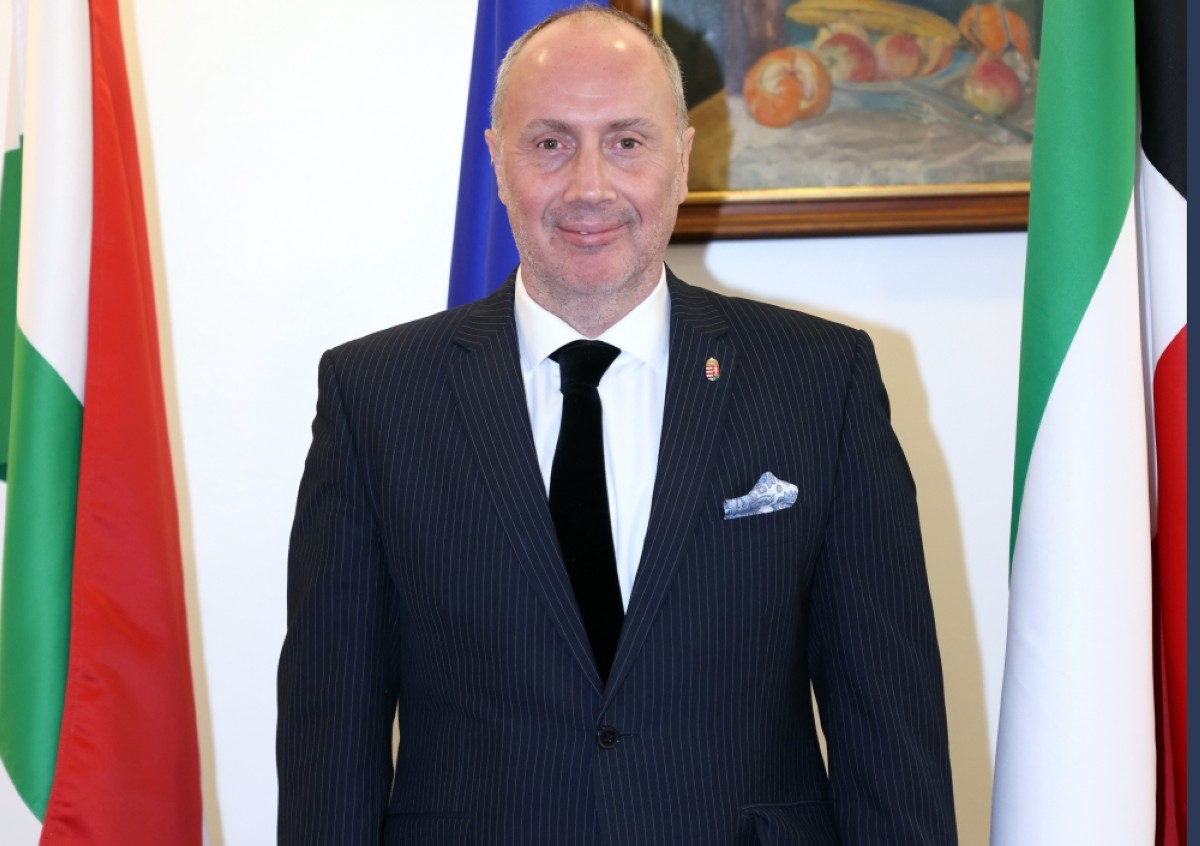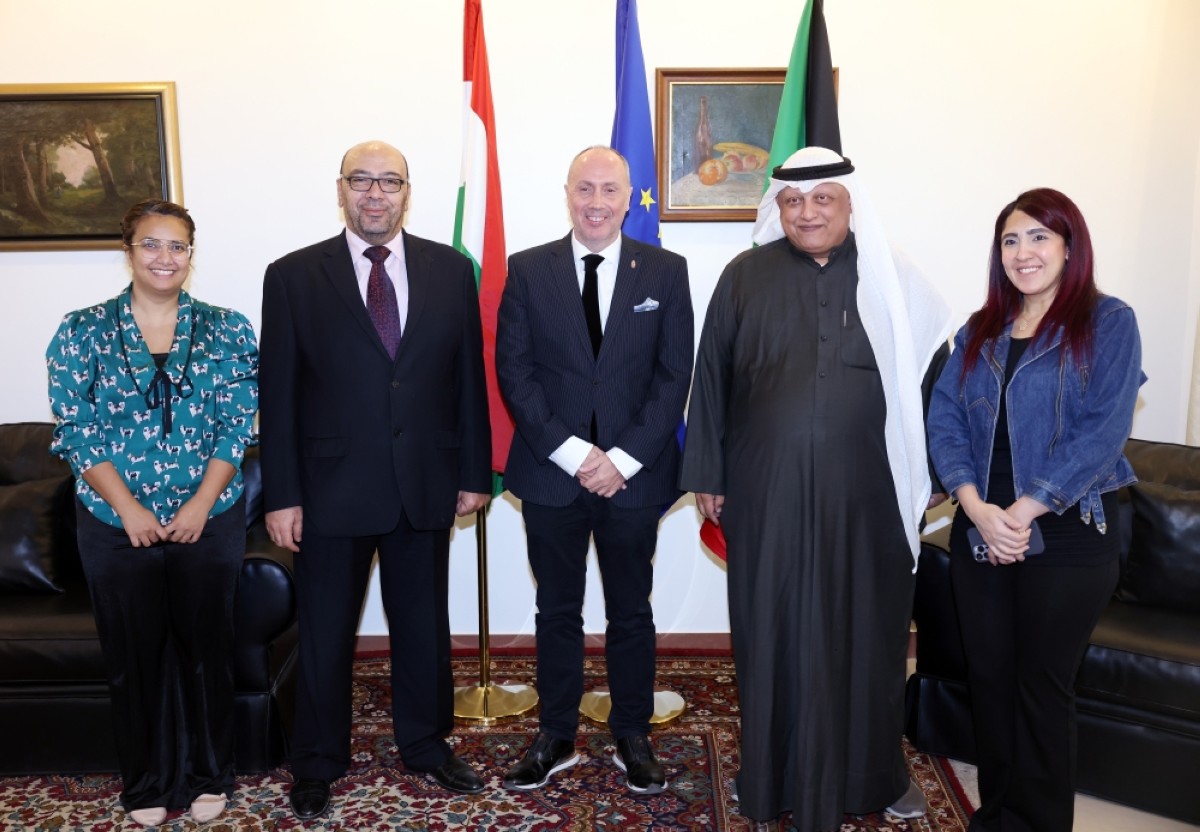KUWAIT: Recently appointed Hungarian Ambassador to Kuwait Andras Szabo shared insights into the strong diplomatic ties between the two countries during a press conference, emphasizing the historical depth of the Hungarian-Kuwaiti relationship and diplomatic connections dating back to 1964. He disclosed details of his discussions during his presentation of credentials to HH the Crown Prince Sheikh Mishal Al-Ahmad Al-Jaber Al-Sabah on Nov 22, saying they centered around bilateral relations between the two countries, delving into the historical context while also exploring prospects for the future.
Ambassador Szabo’s emphasis on reviewing the shared history and envisioning a cooperative future underscores the commitment to strengthening diplomatic ties between Kuwait and Hungary, setting a positive tone for their continued collaboration. "Kuwait was the first in the region to establish diplomatic relations with Hungary, with the subsequent opening of the Hungarian embassy in Kuwait in 1975,” he said, expressing his joy over the upcoming celebration of the 60th anniversary of diplomatic relations, reflecting on the enduring friendship between the two countries.
Delving into the milestones, Szabo highlighted the establishment of a small economic office, affirming his presence in Kuwait signals a renewed effort to strengthen ties, noting Hungary is a developed country in the field of information technology innovation and medical and automotive sectors, and notably in cybersecurity and information technology.
Szabo indicated trade volume between the two countries stands at $30 million, revealing Minister of Foreign Affairs and Trade of Hungary Peter Szijjarto will visit Kuwait in March, hoping for new agreements and memoranda of understanding to be signed related to the fields of cybersecurity and advanced information technology.


Szabo called on Kuwaiti investors, encouraging them to consider investments in Hungary, particularly through real estate acquisitions. He highlighted an upcoming legislative development – a new law for a "golden visa” currently before parliament. This visa, as outlined by the ambassador, will extend beyond real estate ownership to encompass individuals supporting university activities and making donations. However, he noted that specific conditions for obtaining the golden visa would be outlined.
"The Hungarian-Kuwaiti Joint Economic Committee, which meets every two years, will hopefully meet in 2025 in Hungary, while we celebrate the 60th anniversary of the establishment of our bilateral relations,” he said. The ambassador highlighted the comprehensive nature of the agreements already in place between Kuwait and Hungary in various fields, emphasizing ongoing efforts to renew certain longstanding agreements, specifically investment protection and double taxation avoidance agreements. Regarding visas, Szabo conveyed his delight over the European Union’s decision to grant Kuwaiti citizens 5-year entry visas, stressing the importance of reinstating direct flights between Kuwait and Hungary, pledging to invest significant efforts into facilitating this crucial transportation link to enable the entry of 1,500 Kuwaitis who seek visas to enter Hungary yearly.
The Hungarian ambassador, reflecting on the historical trajectory of bilateral relations, highlighted the zenith during the ’80s and ’90s when around 10,000 Hungarian citizens thrived in various sectors in Kuwait, notably in medical and sports domains. However, with Hungary’s shifting focus to Europe, particularly after joining the European Union in 2004, ties experienced a decline. He expressed a commitment to rekindling these relations and his dedication to advancing economic cooperation between the two countries.
Szabo said his country offers 20 scholarships annually for Kuwaiti students, highlighting the academic excellence of Hungarian universities, which rank among the top globally, emphasizing that three internationally accredited medical universities in Hungary conduct courses in English. The ambassador also underlined Hungary’s safe, strategic location in the heart of Europe, affordability, and the high quality of its cuisine as factors contributing to an enriching and secure educational experience.
In promoting Hungary as an educational destination, the ambassador showcased the country’s cultural richness, describing it as both ancient and steeped in heritage. He emphasized the warm hospitality of the Hungarian people and the overall cultural experience that students can enjoy. In a bid to strengthen cultural ties, Szabo expressed his desire to consolidate sports relations, sharing his vision to invite Hungarian coaches who have worked in Kuwait over the past decade and promoting Hungarian sports by organizing sporting events in the future.

